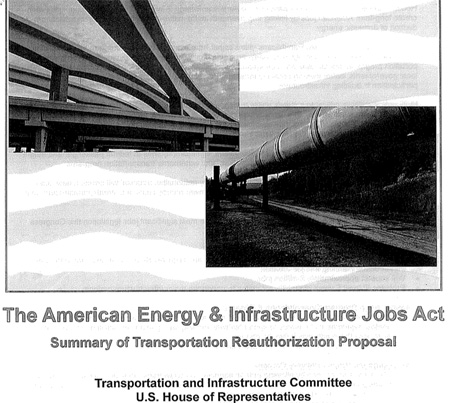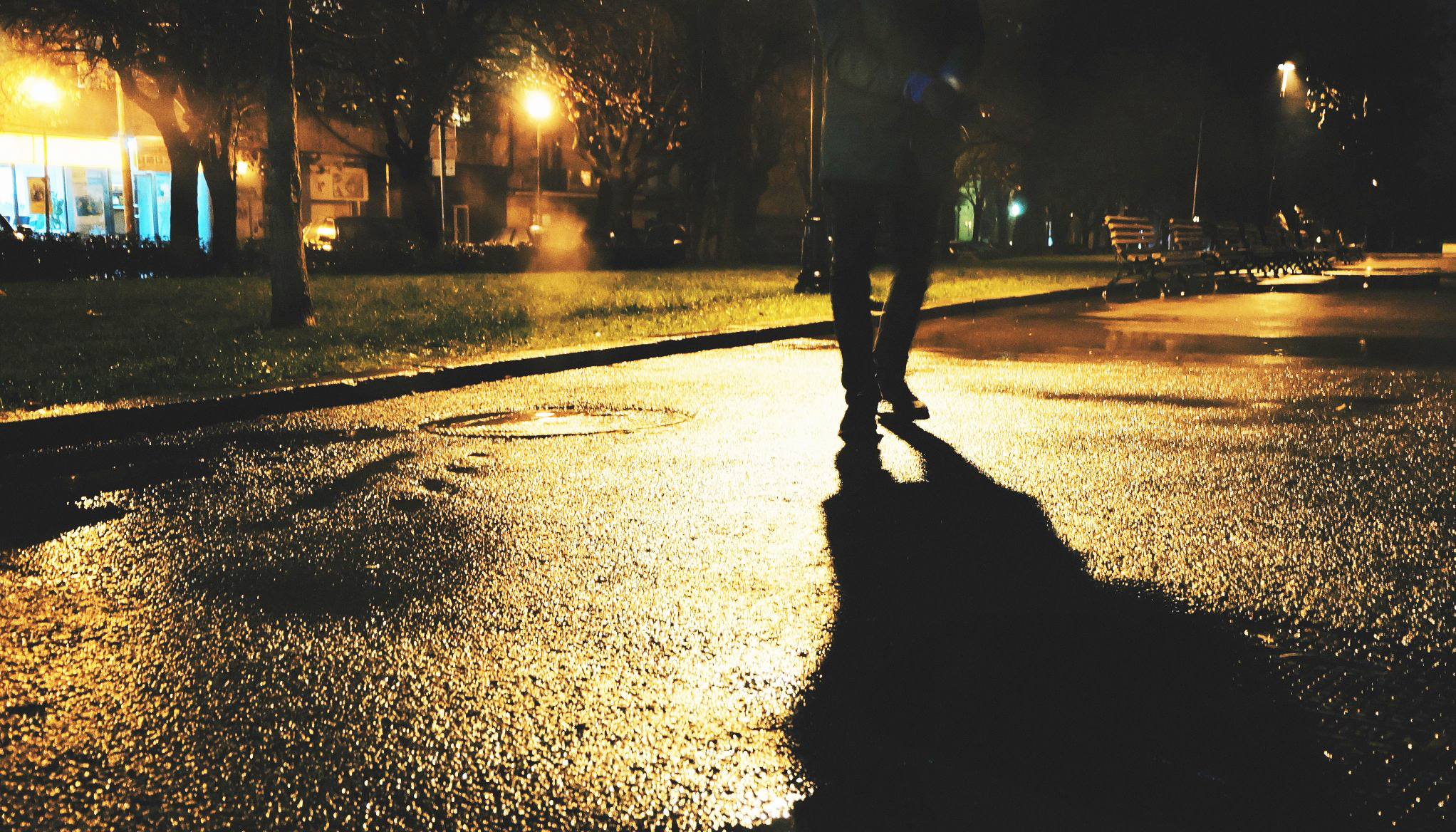There was no grand unveiling of the House's five-year transportation bill today, but a summary of the bill has been kicking around for a few days. While there aren't any hard numbers available yet, the American Energy and Infrastructure Jobs Act looks like a return to 1950s-style transportation policy. It is particularly unkind to transit and bike/ped programs, and to cities in general.
The bill's overarching themes, again in the absence of official language, seem to be:
- Funneling as much money as possible to highways
- Giving even more power to spend that money to state DOTs, not cities and metro regions
- Shortening the environmental review process
- Eliminating programs "that do not have a federal interest," which apparently includes all dedicated funding for bicycle and pedestrian programs
- Doing away with discretionary transit programs, which would spell the end for the very successful TIGER
- Augmenting gas tax revenue with a yet-unspecified revenue stream from oil and gas drilling
One example the summary gives of a project not in the federal interest is the Nonmotorized Transportation Pilot Program, which distributed four $25 million grants "to demonstrate how improved walking and bicycling networks can increase rates of walking and bicycling." One of those grants went to Minneapolis, which is making great strides in promoting biking and walking. If reauthorized at current levels, NTPP would account for 0.04 percent of the bill's total appropriations.
The "flexibility" afforded states to minimize spending on bike/ped and transit, as well as the bill's reliance on oil drilling, have advocates outraged. The Sierra Club's Jesse Prentice-Dunn told Streetsblog that the bill represents "a significant step backwards for safe biking and walking."
"Americans are looking for transportation choices that can conveniently get them where they need to go without polluting the planet," Prentice-Dunn said. "Today more than 12 percent of trips are made by foot or bike, yet less than 2 percent of our nation's transportation funding goes towards biking and pedestrian infrastructure. According to the Alliance for Biking and Walking, bike commuting increased 57 percent between 2000 and 2009. Instead of increasing investment in transportation options that Americans want, the House bill appears to funnel more dollars towards roads, further deepening our addiction to oil."
The bill would also cut Amtrak's operating subsidy by 25 percent in fiscal years 2012 and 2013, would keep existing lanes on the interstate highway system toll-free, and would allow states to use up to 15 percent of their total highway funds to capitalize state infrastructure banks (currently the maximum is 10 percent).
Deron Lovaas, Federal Transportation Policy Director at the Natural Resources Defense Council, told Streetsblog that the bill "looks uninspiring at best, giving states a lot of authority without a lot of accountability."
"The language about curtailing environmental reviews is alarming, but it's probably the tip of the iceberg compared to what we'd see in the bill itself. It's a march of horribles... and they'll go much further than the Senate in eliminating environmentally beneficial programs," Lovaas said. "I can't help but conclude that the house Republican leadership has hijacked the transportation bill and shattered the idea of bipartisanship in transportation policy making."
The new date for the full bill's unveiling is next Tuesday, January 31.






